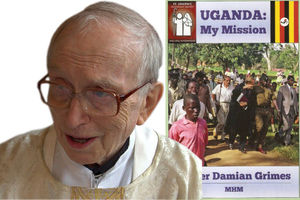Prime
Of deaths of generals, killings and regime changes

Abendeh S.P Wamoto
What you need to know:
- It is said that death is a democracy for it spares none and that it is the ultimate liberation. In the same two weeks however, I have been overwhelmed by shock by the above events.
The past two weeks have been shrouded by news of the Taliban takeover in Afghanistan, exodus of her people, some even coming to Uganda, deaths of Ugandan Army officers and criminal attacks and killings at the Nigerian Army Academy.
It is said that death is a democracy for it spares none and that it is the ultimate liberation. In the same two weeks however, I have been overwhelmed by shock by the above events.
As early as 5:30am on July, 16, 1945 when a light brighter than a thousand suns flashed above the desert sands of New Mexico, the first atomic bomb had been exploded and one scientist exclaimed, “Oh my God, we have created hell ourselves” then on August 6, 1945 an atomic bomb was dropped on Hiroshima, Japan where one third of the population was either killed or injured.
Three days later in Nagasaki, Japan, a second atomic bomb was dropped killing or injuring one half of the people.
In short, we (humans) are always shocked at death even when it is natural just as I got shocked at the demise of Lt Gen Pecos Kutesa whom I knew closely, especially when he was director of doctrine in UPDF having replaced Gen Wakaalo at Kimaka in Jinja and shocked more a week later when Maj Gen Paul Lokech died quietly at his home.
I didn’t work directly with Gen Lokech but he called me occasionally to read his condolence messages when his officers and men would die in line of duty in Mogadishu, Somalia.
A criminal gang attacked Nigeria Defence Academy (I knew many officers at this academy) killing two senior army officers and abducted one. In Afghanistan, Talibans wrestled back State power after two decades in the cold, leading to an exodus of Afghans from their own country.
The only good news emerging from Africa in the two past weeks was Zambia’s Hakainde Hichilema (HH) who was sworn-in in a very peaceful transfer of power in the presence of his predecessor Edgar Chakwa Lungu which “Democratic Africa” must emulate. Democracy can be best understood as an ideology, a concept or a theory.
It is an ideology in so far as it embodies a set of political ideas that detail the best possible form of social organisation (Mackenzie, 1994).
What happened in Zambia therefore literally means democracy is a rule by the people. It is a political system in which all citizens enjoy a number of basic, civil and political rights.
It provides for the election of political leaders in a free, fair and peaceful atmosphere and ensures that such elected leaders remain accountable under a rule of law.
We needed army generals such as Kutesa, Lokech, Julius Oketta, Aronda Nyakairima, Noble Mayombo to witness such a glamorous change of government and the State in Uganda. Fare-thee-well generals.
Nabendeh S.P Wamoto, [email protected]




